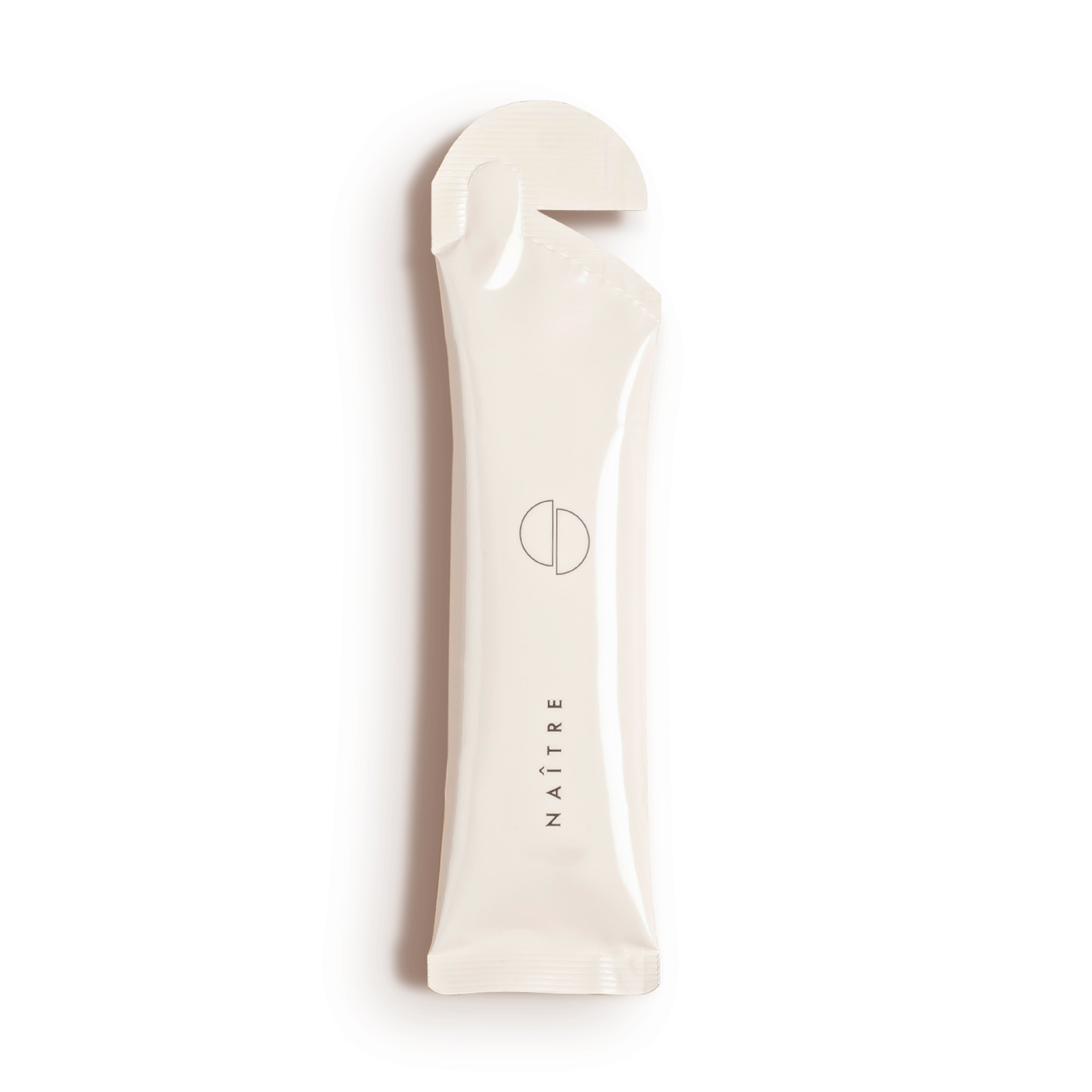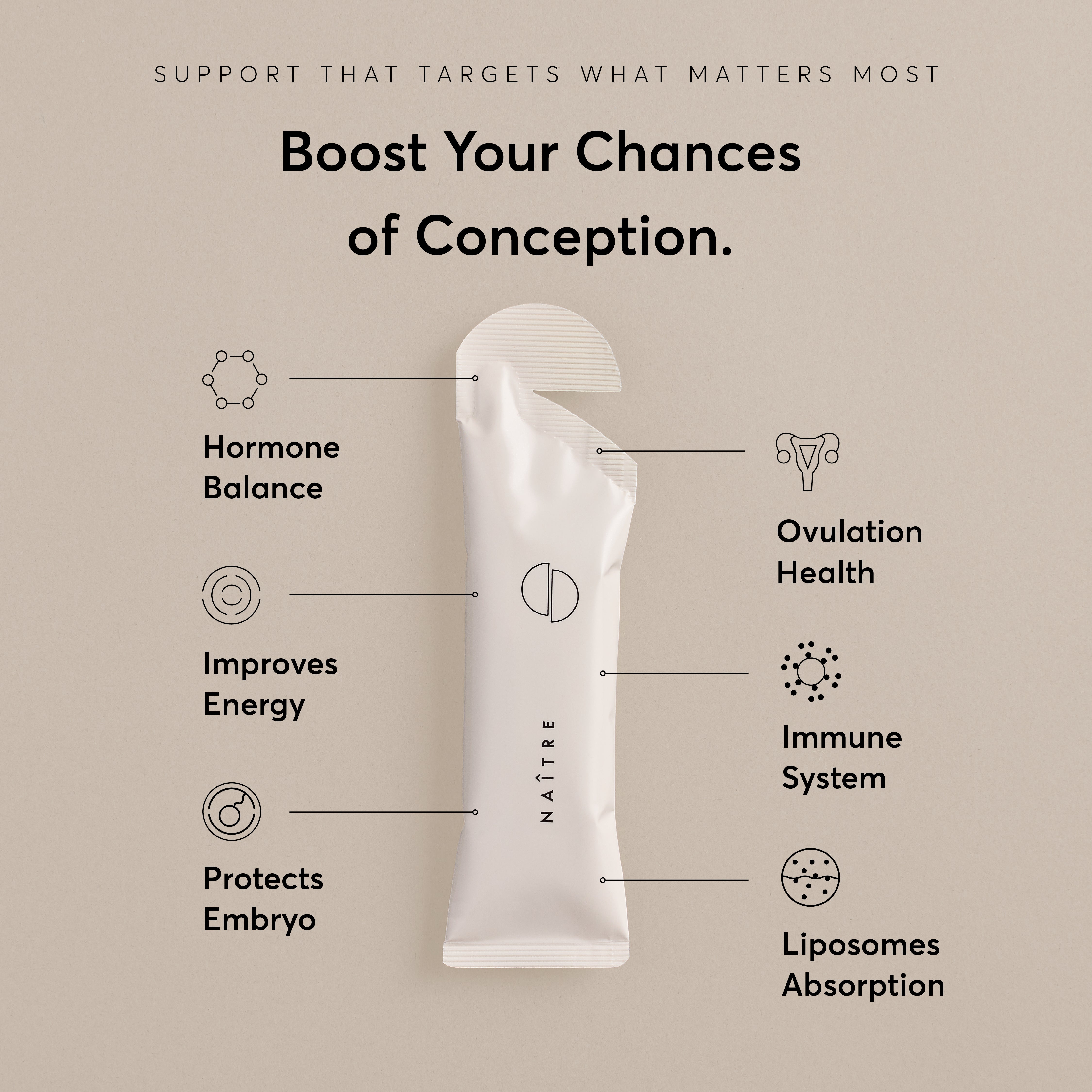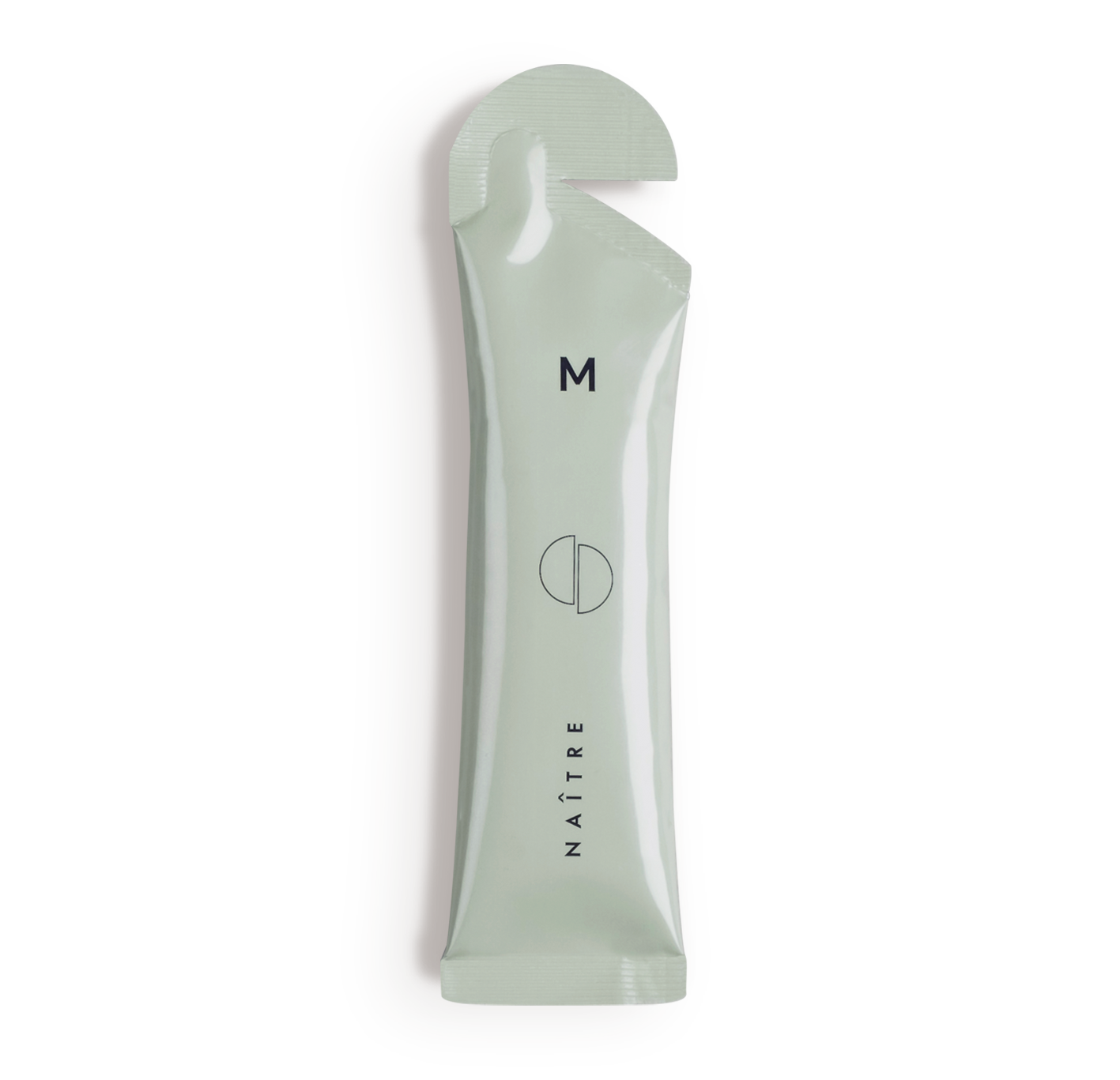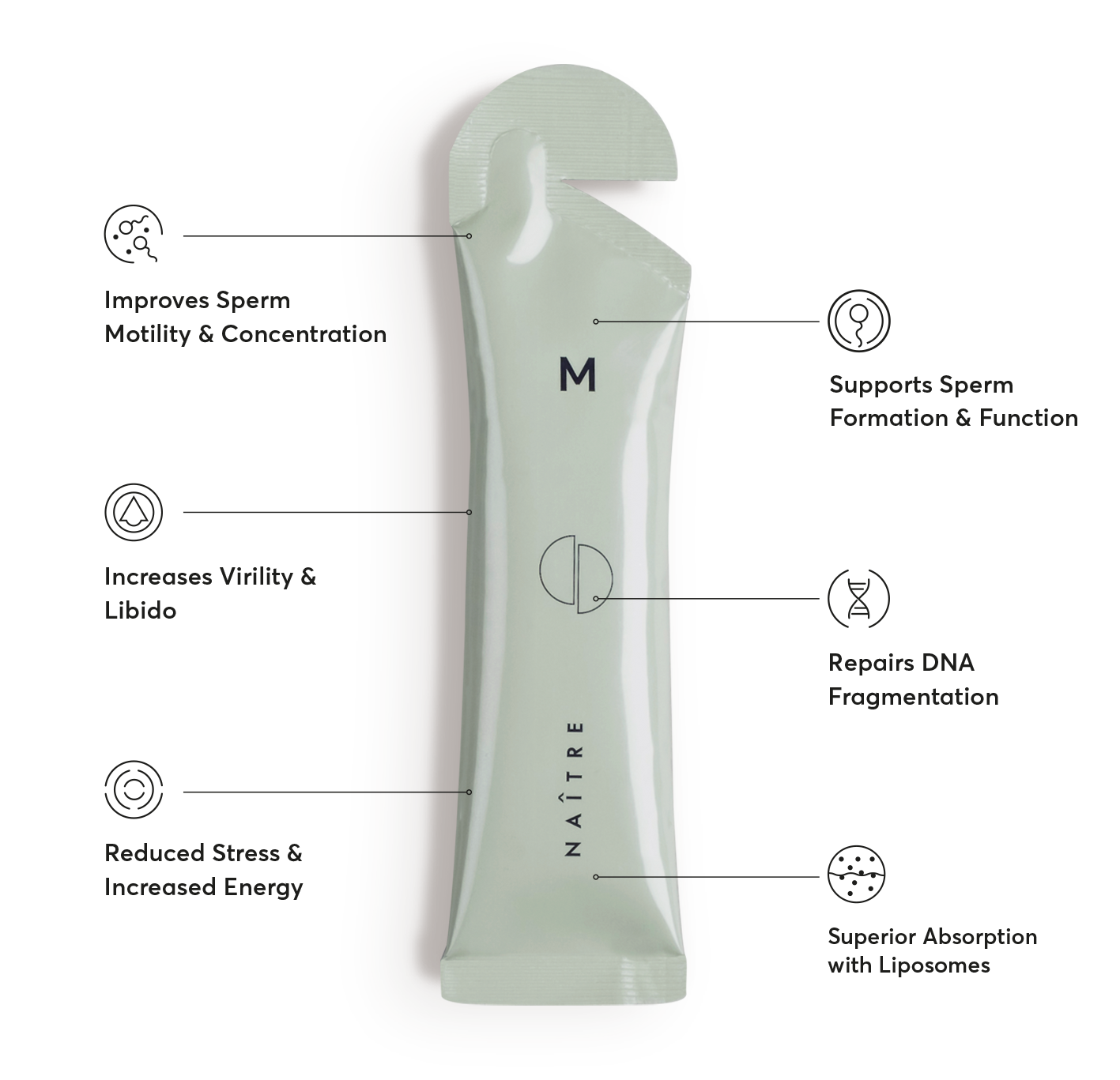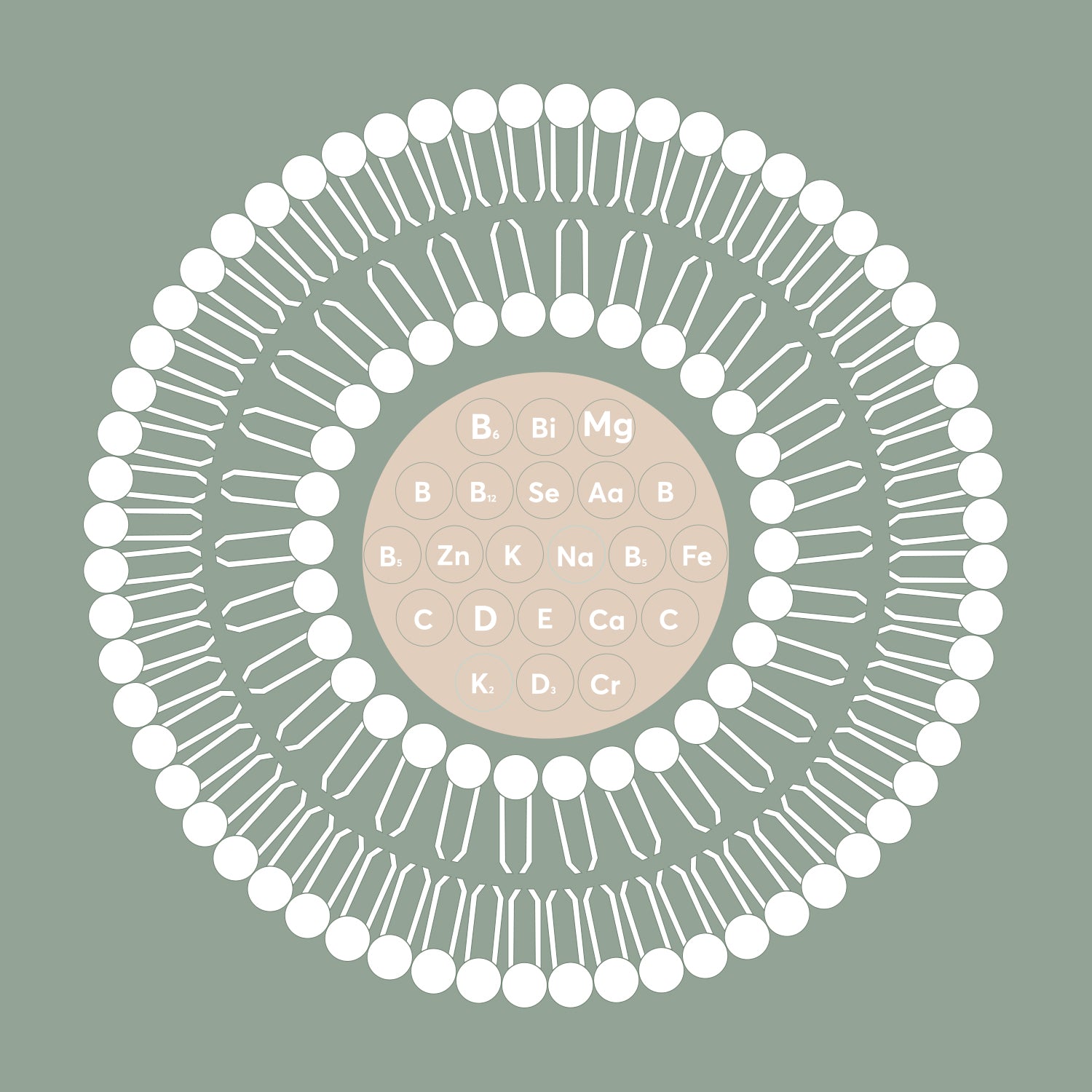
The word “lipo” comes from the Greek word for “fat.” Liposomes are small, round-shaped vesicles made of essential phospholipids, the same things that constitute our cell membranes.
Liposomes are the most common and well-investigated carriers for targeted drug delivery. Liposomes enhance the uptake and bioavailability of nutrients. Therefore, active ingredients are absorbed much more efficiently.
What are liposomes?
Liposomes are spheres made of a dual lipid bilayer with an aqueous core where the active ingredients are held. They can be made in the laboratory starting from naturally derived lipids such as phosphatidylcholine-enriched lipids. This means that they will have minimal toxicity since the body won’t recognised them as “foreign” agents.
Liposomes are tiny, varying in size from 0.025 micrometers (µm) up to 2.5 µm. Yet, they are revolutionising the field of nanomedicine and drug delivery.
Advantages of liposomes
for drug delivery
- Biocompatibility
- Biodegradability
- Low toxicity
- Possibility to tailor target-specific delivery
- Possibility to trap several different drugs and supplements with a wide range of properties (for example, both hydrophilic and hydrophobic drugs)
- Enhanced uptake and bioavailability
How does liposome
technology work?
When you swallow a capsule, it goes into your gastrointestinal (GI) tract. The acids in your stomach will disintegrate it and release the content. However, this disintegration is not the ideal setup for the absorption of a nutrient. It can happen too quickly or too slowly, and the precious active component in the supplement can easily go to waste before bringing any therapeutic benefit.
It has been shown that oral absorption is a barrier to bioavailability in more than 90% of therapeutic agents. And this is where liposomes come into work.
Several clinical studies have shown that liposomes can significantly enhance the bioavailability of oral drugs.
With liposomal technology, the active ingredients are encapsulated within the spherical vesicles’ structures. The lipid bilayer not only transports the active ingredients. It also protects them so that they can be more efficiently absorbed. Liposomes act as a sort of shield for the nutrients.
The way liposomes enhance the bioavailability of an active ingredient is by protecting the drug in the GI tract, increasing the cellular contact (remember? They are made of the same thing of the cells’ membrane), protecting the drug from early metabolism and increasing the diffusion across the body.
Discover our Liposome Fertility Formulas >
Liposomes for nutritional supplements
Liposomal delivery represents the optimum solution for nutritional supplements.
Studies have demonstrated that oral delivery of certain vitamins encapsulated in liposomes results in greater bioavailability and higher concentrations than oral delivery of the same vitamin in pill or capsule form.
The possibility of incorporating the active ingredient into a liposome means that the intended benefit can be achieved without an excessively high dose. Liposomal delivery, therefore, allows a more effective therapeutic benefit and correction of potential nutrient deficiencies.
In addition to improved effectiveness, liposomes also display minimal toxicity, making side effects such as nausea way less likely to occur. This is particularly important during the first few delicate months of pregnancy when nausea and vomiting are already quite common.
To sum up
Due to the several advantages they provide, liposomes are a very promising tool for drug delivery. In the context of nutritional supplements, they can enhance the uptake and bioavailability of nutrients. This means that you will make the most of your supplement: from one hand, the active ingredients will be absorbed much more efficiently. On the other hand, you will also benefit from very low toxicity, making these tiny bubbles a very gentle and powerful tool to achieve optimal health.
Dr Arianna Ferrini has a PhD in Tissue Engineering and Regenerative Medicine

